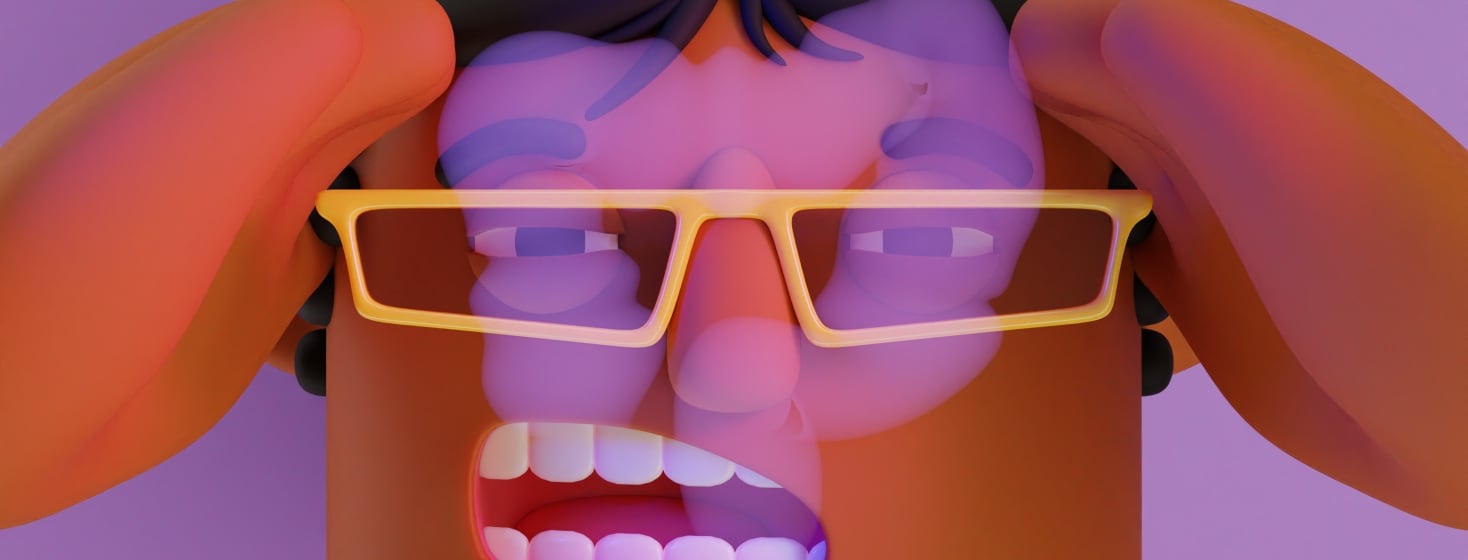Managing Invisible Aspects of Crohn's and Ulcerative Colitis
There is a lot to learn when it comes to managing ulcerative colitis and Crohn's disease. I often remind my patients that their emotional health is just as important as their physical health.
Crohn's and UC go beyond the bathroom
With that comes open conversations about many aspects of the disease that can't be seen by the eye. Many GI conditions cause symptoms far outside the bathroom. Often with chronic illness, symptoms of chronic fatigue, migraines, depression, anxiety, chronic pain, and more are dealt with in silence.1
Comments can sting
“You don’t look sick.”
"You must be doing well, you look great!"
Perhaps you can relate. Someone makes such a comment when you are actually feeling pretty crummy. With chronic illness, you don’t know exactly how you will feel each day. For instance, you may be up throughout the night with GI distress, followed by a morning of nausea and pain but make it to work and do a great job. You arrive home from work, skip dinner, and are in bed by 7 PM due to severe fatigue.
If a friend asks you to go to happy hour later in the week and you reply that you just aren’t up for it, that's when it happens. The disappointed look on their face that can make you feel worse. It’s likely that due to visible and invisible aspects of your UC or Crohn's, and you have missed out before.
Navigating invisible illness
Often, those in your life may have no idea just how much energy and intention it took for you to get through your day or week. The complexities of invisible illnesses can be made better when you assess what your needs are.
Sometimes it requires a conversation with your loved ones to highlight just what you are currently experiencing. Perhaps you aren’t up for going out, but you may be able to have a friend come to your house for a more relaxing evening in. Here are some other suggestions for navigating your needs.
Ask for help from loved ones
Don’t expect that your friends and loved ones know all that you are going through or what your needs are. Be honest about what you are experiencing and how it impacts your day-to-day functioning. By having an open conversation with a loved one, they may be able to offer help.
That help may be something tangible, like grocery shopping, cooking, cleaning, or yard work. Or it could be emotional support like offering kind words, listening, or maybe providing some quiet space.
Featured Forum
View all responsesTalk to your doctor about ALL symptoms
Speak to your doctor about all the symptoms you are experiencing, even if you don’t think they have anything to do with your UC or Crohn's. There may be labs your doctor can run to assess whether a supplement or medication can help with symptoms of fatigue, low energy, or pain.1
If you are suffering with emotional symptoms, such as depression or anxiety, working with a health psychologist can give you tools to better manage or reduce those symptoms.1
Know that your UC or Crohn's can change at any time
Remember that how you are feeling at any given time can change. You may be going through a difficult flare or perhaps you are in remission and still struggling with ongoing symptoms. Keep in contact with your support system, and assess whether you have all the team members in place that can help!
Key players on your Crohn's or UC care team
Have a medical team in place, and reach out to them for support. That's what they are there for.
- Gastroenterologist to address the medical complexities of your disease
- IBD nurse to address questions and symptoms that arise
- Primary care physician to address other medical symptoms outside of your GI condition
- Mental health professional to address emotional health and psychological symptoms (search for a gastropsych professional in your area)
- Dietitian to address nutrition
- Physical therapist to address physical functioning and pain management
Other important support
Outside your healthcare team, find support within the IBD community and people in your life.
- Friends and family to provide additional caregiving and emotional support
- Work colleagues to share only what you feel comfortable sharing. If needed, speak with your human resources professional to know your rights at work.
Having an informed support network
It is not your job to educate everyone in your life on the visible and invisible aspects of your experience with UC or Crohn's. However, it can help your well-being to invite those closest to you to learn more about it.
Invite them to read content on this website, find a local patient advocacy group, or attend an educational event sponsored by the Crohn’s and Colitis Foundation. Managing all aspects of your ulcerative colitis and Crohn's disease can be easier when you feel fully supported!

Join the conversation